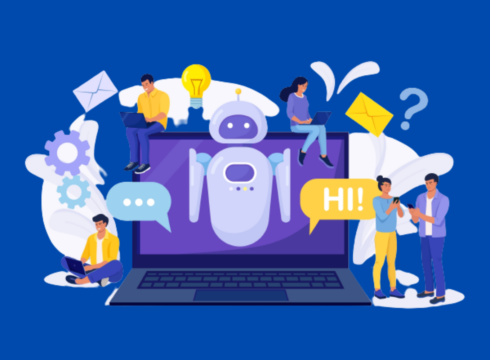The aim of the new project is to construct a tool to help consumers converse in multiple Indian languages
The language translation part of the new tool will be built by the government’s Bhashini platform
The development comes as the government has already deployed ChatGPT across two of its other projects
Inc42 Daily Brief
Stay Ahead With Daily News & Analysis on India’s Tech & Startup Economy
The government is reportedly building a ChatGPT-like chatbot helpline as a grievance redressal system. The aim is said to be to construct a tool to help consumers converse in multiple Indian languages through audio messages.
According to a Moneycontrol report citing sources, the proposed chatbot is different from the one launched by the government last month, which was not conversational but rather asked the users to select from a list of options step-by-step.
Sources cited by the publication stated that the language translation part of the new tool will be built by the government’s Bhashini platform. However, the government has yet to find a large language model (LLM) that can understand specific consumer issues and laws.
“The existing large language models (LLM) that different companies have created won’t work for us. This will need an LLM that understands the specific nuances of consumer issues and laws,” a person was cited by the publication as saying.
Essentially, LLMs trained on domain-specific data can better understand the context and nuances of the said domain. For instance, a language model trained on tech data would be able to understand tech jargon and be able to answer tech-related questions better, than a model trained on other data.
However, the performance of such a language model still depends on other factors such as the size and quality of training data, the model’s architecture and the quality of the pre-processing and post-processing techniques used.
Further, there are issues with existing language learning models such as Open AI’s ChatGPT and Google’s Bard. One such problem is the models’ tendency of making untrue statements when challenged with questions or facts they don’t have information about, a phenomenon known as ‘hallucinations’.
For instance, ChatGPT is known to return wrong answers to questions such as math or physics problems, since it has little context on how to solve the problem intuitively.
It is still unclear whether the government wants to build just a chatbot by renting a large language model from a service provider such as OpenAI or wants to build an LLM from scratch.
The hubbub around the ChatGPT grievance redressal system comes as the government has already deployed ChatGPT across two of its other projects; the democratisation of school education in vernacular languages and the spreading of awareness about government schemes.
The development also comes as India’s tech startup industry debates how safe AI would be and the need to regulate it.
Earlier this month, Zoho cofounder Sridhar Vembu joined the growing chorus voicing the need for a regulated AI environment. In an open letter which was co-signed by former NITI Aayog vice-chairman Rajiv Kumar and cofounder of iSPIRIT Foundation Sharad Sharma, Vembu appealed to the country’s policymakers, academicians and other stakeholders to debate the impact of AI.
However, it seems that the government is not looking to regulate AI any time soon.
“The government is not considering bringing a law or regulating the growth of artificial intelligence in the country,” the Union Minister for Electronics and Information Technology Ashwini Vaishnaw told the Parliament last week.
Note: We at Inc42 take our ethics very seriously. More information about it can be found here.


